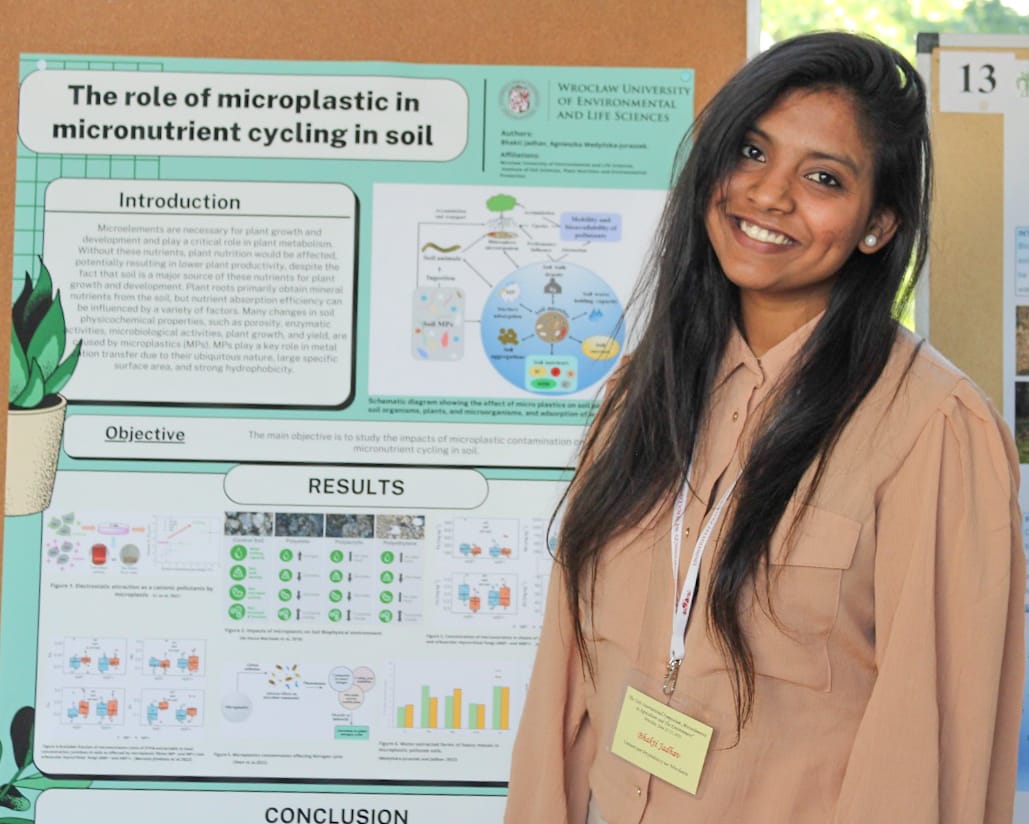Microplastics are a hot topic in public discussion nowadays. It is widely known that the tons of plastic we use may cause harm to the natural environment. Bhakti Jadhav, an Indian UPWr PhD student wants to check what influence microplastics have on plants and agricultural soil.
The first time Bhakti came to Poland was during her Bachelor’s studies. She had a chance to study in Warsaw and after that in Cracow.
– Poland was the first country where I gained international experience. I got a good impression of the place because it was the first European country I visited and the people I met were friendly and nice. So after some time, I felt quite comfortable here – says the student.
After learning about UPWr and the fact that the PhD programme offered some good opportunities for research activities, Bhakti decided to apply to the Doctoral School.
– I’m very happy that UPWr supports many scientific activities. There is also financial support for that, including funds from my institute. There are different internships available. You can have a lot of international connections. That’s one of the best things about the UPWr – says Bhakti.
The student’s supervisor Prof. Agnieszka Medyńska-Juraszek from the Institute of Soil Science, Plant Nutrition and Environmental Protection, is an expert on agricultural soil, so together with Bhakti, they agreed on how to combine the student’s interest in plants with the soil research.
– What I do in my research is study the influence of microplastic pollution and how it affects the physical and chemical properties of agricultural soil and plants. I focus on microplastic pollution by working with 5 different species of plants which people and animals consume (e.g. lettuce, celery, spinach). The findings of our recent study confirmed that microplastic particles affect soil properties important to the sorption/desorption process of metal cations by altering metal speciation, increasing the amount of readily exchangeable and potentially bioavailable forms of Cu2+ or Pb2+ in the tested soil, and increasing soil pH – the student explains.

It’s not easy to get rid of plastic since we use plastic containers and products all the time. The plastic degrades with time and small particles can easily go into the soil or water. Microplastics are also found in cosmetics, fibres produced during the drying process of polyester fleece materials, etc. Undoubtedly, industry and a lot of human activities are sources of microplastic and heavy metals pollution which affects the environment.
The outcomes of the research may be quite crucial because microplastics affect the soil and plants and then in the end people since we are the consumers of vegetables and fruits.
– Right now I focus more on a superficial level analysis of the plant transformations caused by microplastics, but I would like to do my research on the molecular level as well. I want to see how it affects the gene sequences of the plants or if any other factors are causing physiological changes in plants in response to microplastic and heavy metal treatments – says the doctoral student.
After PhD studies, Bhakti wants to pursue a career in research. She is not sure if she would go to work in the industry or pursue a postdoc. But even in industry, she would focus on the research & development field, to develop her research interests.